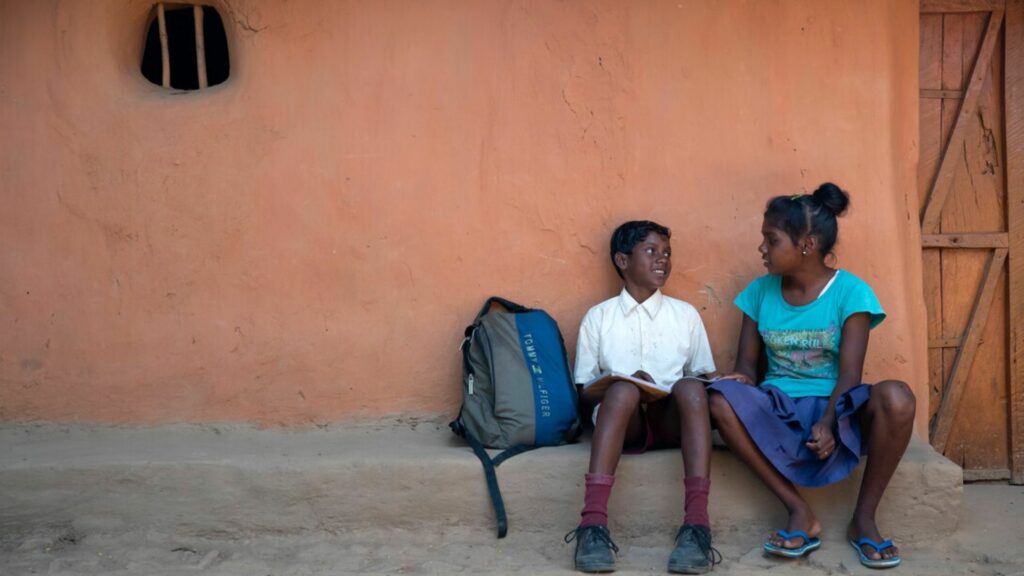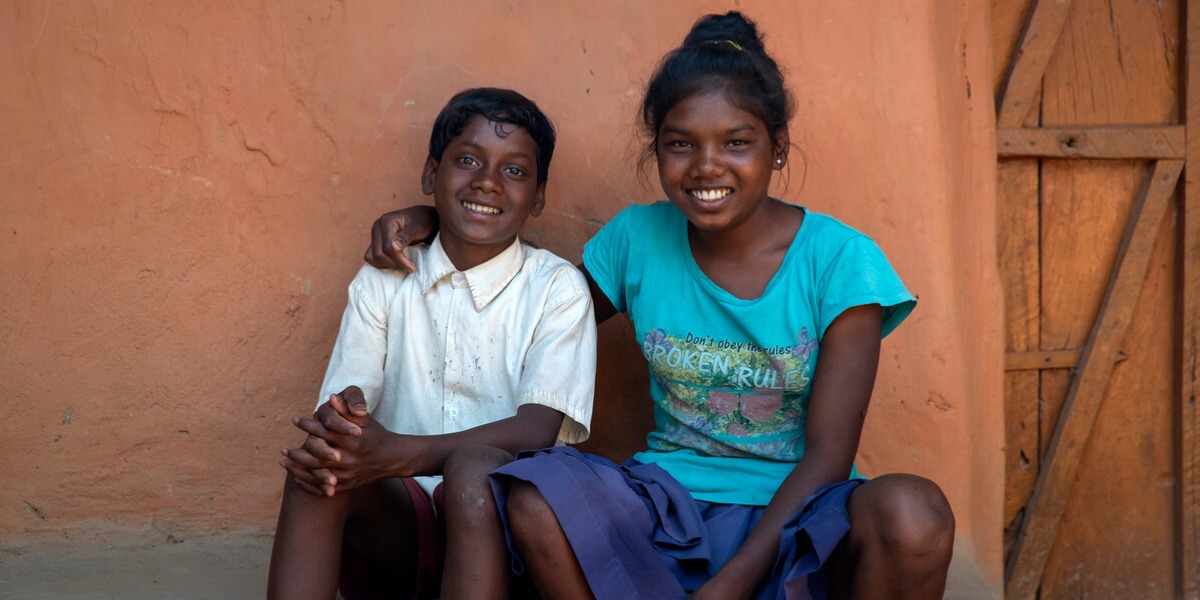Without parents to care for him, eleven-year-old Dilip was in danger of being separated from his big sister, Munni, and sent to grow up alone in an orphanage. Now, they have the support they need to stay together and decide their own future.
At 16 years old, Munni is carrying a heavy weight on her young shoulders, but her younger brother, Dilip, can still make her laugh. Their father died a year ago and poverty forced their mother to remarry. Since then, Munni has been struggling to look after Dilip by herself. Until recently, she had dropped out of school and was taking whatever work she could find to make ends meet, but it wasn’t enough.
Soon Dilip dropped out of school, too. He was embarrassed to go without a proper uniform and they couldn’t afford to buy one. Munni was desperately worried about her brother. At just eleven years old, he was spending his days, roaming the village with nothing to do and she knew he was at risk of being sent to grow up at an orphanage with no one to love or protect him.
“We have worked with the local child protection committee to link Dilip to a sponsorship scheme that will provide him and Munni with a small income.”
But today, thanks to your support for our work, Munni and Dilip are still together and their future looks a little brighter. Through our local partners in the rural part of east India, Child in Need Institute (CINI), Hope and Homes for Children is working to help vulnerable children to stay with their families and in their communities. In this way we can stem the flow of children into orphanages that threaten their wellbeing and life chances.

We have persuaded Dilip to go back to school and given him the resources he needs to study. At the same time, we have worked with the local child protection committee to link Dilip to a sponsorship scheme that will provide him and Munni with a small income. Munni too is feeling more positive about the future. Our partners have arranged for a tutor to visit the village and work with her and some of the other teenage girls. This means she can continue her studies without having to risk walking 5km to the nearest secondary school on her own or worry about leaving Dilip by himself. Life is still tough, and their situation remains fragile, but Munni is confident that she can take care of her little brother now.
When we ask Dilip what he’d like to be when he grows up, he says he wants to be a policeman and catch thieves. But like most eleven-year-olds, he’s far more interested in the here and now than answering questions about the future. He doesn’t want to be rude but as soon as we’ve finished our talk, he slings his school bag in through the door and dashes off to play with his friends. Munni rolls her eyes and smiles.
Support our work Help keep children out of orphanages
On average it costs just £45 to identify a vulnerable child at risk of being separated from their family.
